— Crimes Without a Scene: Qian Weikang and the New Measurement Group
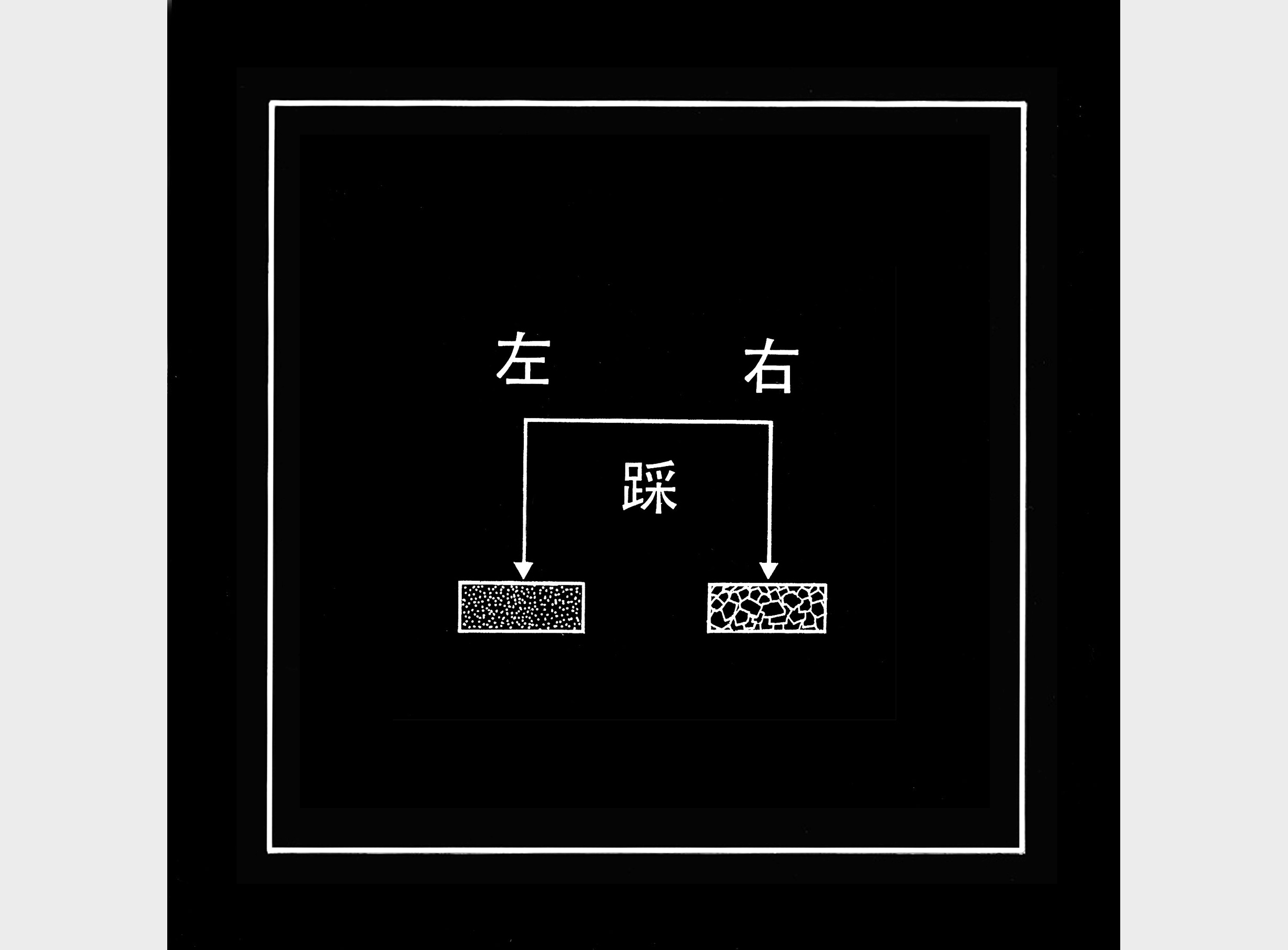
In the mid 1990s, the Shanghai artist Qian Weikang and the Beijing artist collective New Measurement Group (Chen Shaoping, Gu Denxin, and Wang Luyan) stopped making art. They did not foresee the difficulty we would encounter today in revisiting their work only two decades later. These were artists whose artistic vision and practice were deeply invested in modernizing contemporary art in China soon after 1989 by introducing self-imposed rules into the making of work, as well as with the arbitrary, willful, and emotional decisions of the individual. Without planning to be, they were simultaneously active in two of the most important cities for cultural activity and discourse in China, and their paths crossed occasionally in a handful of group exhibitions. But most importantly, they were at the forefront of an emerging conceptual art movement in China in the post-Tian’anmen era. Instead of running away, as many of their disillusioned peers and colleagues did after 1989, they stayed put.
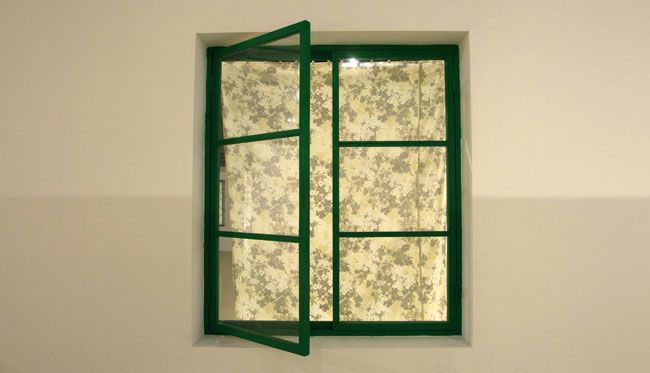
Yet today their names are mostly mentioned in passing in short summaries of any written history of contemporary art in China. Other than a few “witnesses” who had actually seen their works during their time, few know or recall what they actually did.
Qian Weikang made about twelve installations and five written proposals between 1991 to 1996. After making and presenting them in largely self-mounted exhibitions, Qian disposed of his works simply because he did not have any space to store them. In 1996 he then made a deliberate decision to stop making any visual artwork, participating in any exhibition, or socializing in art circles. In the same year, the New Measurement Group concluded their activities by trashing all of the manuscripts and related materials they had produced during their eight-year collaboration. One of them, Chen Shaoping, did not make any other work from that point on, though he remained in touch with the art community. Gu Dexin, who had had a very prolific and celebrated career since the 1990s, quit all artistic activities in 2008 and limited his involvement in the art world to occasional meetings with close friends and colleagues. In 2012, when a major survey exhibition of his work was organized in Beijing, he was absent from the planning and curatorial process and did not even visit the exhibition. All of the works were loaned from collections other than his own. The only one of the group who still maintains an active presence in the art world is Wang Luyan, who continues to make works and to collect works of his fellow artists. Neither Chen Shaoping nor Gu Dexin had publicly discussed much about the work of New Measurement. Available resources on their work remain scarce.
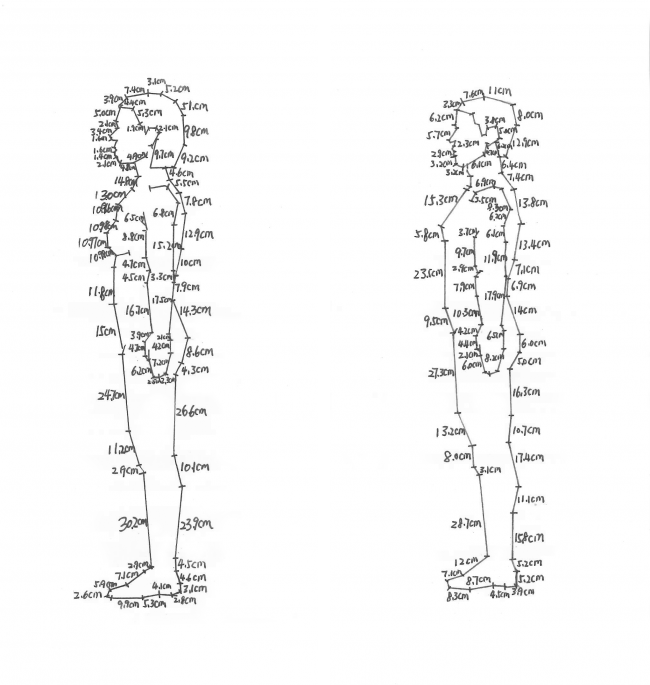
In setting out to recreate and present works by Qian Weikang and the New Measurement Group in two parallel solo exhibitions, we found trying to understand these two practices today to be like entering a crime scene stripped clean of any physical evidence. There was as much ignorance as there was mystery and myth surrounding them. It did not help that the members of the New Measurement Group had stopped seeing each other socially long ago. Though they reside in the same city, the last time they sat down together to discuss the work of their group with a curator was in 2008. Qian Weikang, on the other hand, had not visited any contemporary art exhibition in two decades. On one occasion when we approached him to re-create a work of his, he made it clear that the decision was entirely ours. He did not direct us or answer any question about how the work should be made. His self-discipline in refraining from any kind of involvement was firm, despite his absolute amicability.
Compared with the relative anonymity of Qian Weikang, the legendary status of New Measurement is often associated with the aura surrounding Gu Dexin, who, at the height of a successful international career, voluntarily abandoned the art world. The event sparked speculation and wishful projections, mostly interpreting his act as a rebellious gesture, a rejection of the power of the art system, or a sign of martyrdom. Some showered him with admiration and compared him to a master.
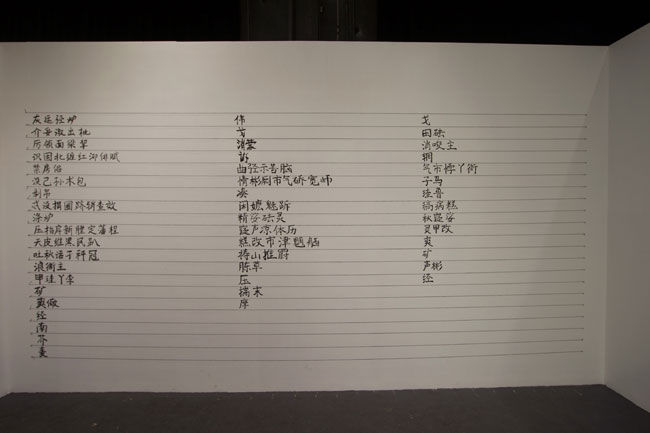
Whatever the reason for their silence, it led to an omnipresent obliviousness to their work, except for a couple of art critics who claimed absolute authority over its subject matter. These critics had seen the work of the New Measurement Group and worked with them, and even held some letters from its members and out-of-print or otherwise unavailable publications. The New Measurement Group produced five books that, together with the trashing of their archival materials, they considered to be the totality of their work. According to all three artists, none of them had a complete set of these five publications in their own possession. And none had the publication of the third work, as it was allegedly lost in the post on its way to Beijing from Germany. Each of the five publications were works commissioned and produced for exhibitions that happened in Fukuoka, Hong Kong, Berlin, Erfurt, and Barcelona. When we actually gathered together all five books from various sources—three from the artist Gu Dexin, one reproduced from digital files provided by Chen Shaoping, and one purchased from Amazon.de—it turned out that most of the languages used in these books were the respective local languages of the countries where they were made, and thus not legible to Chinese readers.
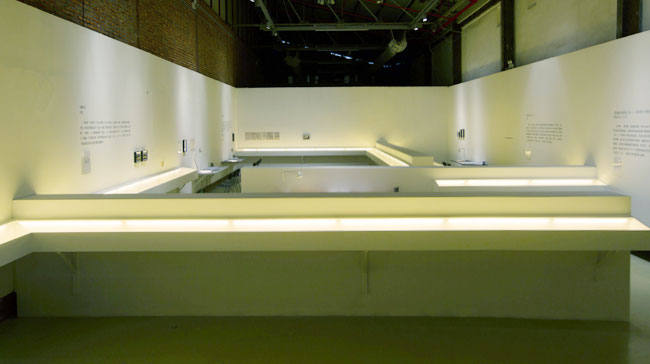
With these cases and others of their kind missing from the pages of China’s art history, current historic accounts often fail to offer a diversity of approaches, experiences, and criteria for making and evaluating art. With the supremacy of the art market and the preference for immediate and visible outcomes in artistic discourse, the popular anti-intellectual sentiment in the art community leaves especially little room for more careful consideration of precisely these conceptually charged and intellectually challenging works and processes. What were these practices that still fascinate us today, even when we have so little information on them?
Qian Weikang was denied any college education due to a heart problem, and from 1982 to 1987 he found work feeding coal into a burning furnace for a machinery manufacturer. It was then that he became infatuated with modernist poetry and radical writing experiments and began participating in an underground literary scene in Shanghai. Like many literary enthusiasts of that time, Qian read many translated works from Europe and was deeply impressed by modernist ideas and the avant-garde movements described in those books. In his twenty-square-meter home on the outskirts of Shanghai, Qian carried out a writing experiment, which he termed “the ladder poem.” He picked more than one hundred characters at random from a dictionary of modern Chinese and wrote each of the characters on a single piece of paper. He drew lines on his floor with white chalk to resemble a notebook page, and climbed up a ladder to release the paper slips from atop the ladder. By transferring the characters that fell on each of the lines on the floor onto his paper notebook, he composed his ladder poems. The idea of leaving the outcome of a process open to such forces as gravity and wind recurred throughout his practice.
After 1989, Qian had more contact with the visual art circle in Shanghai, mostly due to his reuniting with a friend from primary school, artist Shi Yong. Qian applied to work in the basement gallery of the Shanghai Huashan Art School, where Shi still teaches today. The two of them organized group exhibitions with their colleagues, and then an exhibition together that could be considered two parallel solo exhibitions. It was in the same low-ceilinged space that Qian made and showed the first of his installations, and most of his later ones. His first public presentation as a visual artist was an installation consisting of nearly thirty thousand pieces of white chalk commonly used for writing on blackboards in schools. He stood half of them on the floor and let the other half fall in all directions, as if blown by a whip of wind. Together, they formed the shape of a triangle. After this work, he switched to using sheets of iron plates, coloring them deep blue, laying one on top of another to create beautiful forms, and sifting white plaster powder onto a part of the steel plates from on top of a ladder. One of these works featured a video of a running fan looping on a monitor elevated from a metal stand, facing down at a forty-five-degree angle to three sheets of metal plates stacked upon each other on the floor. Another work made of metal sheets consisted of two sheets bound by exposed wire so as to transmit electricity from the power circuit in the wall to a radio playing a local music channel. In a way, these works were poems themselves, using serene and elegant forms to narrate the poetry of invisible forces and connections.
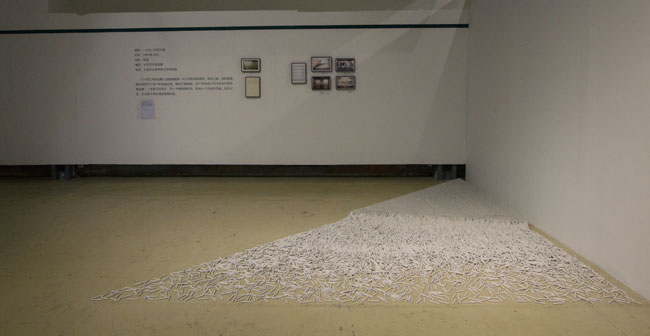
The New Measurement Group, in contrast, produced almost no objects other than their five books, which were printed in small quantities and given away to colleagues or sold in the bookstores of the institutions where they exhibited. The root of their practice, as Gu Dexin explained to us, and as Chen Shaoping and Wang Luyan later confirmed, could really be traced back to the thinking of Gu Dexin. While working as a guard in a factory, Gu got in the habit of watching people passing by, just as he often casually observed the activities of animals in the Beijing zoo. He also enjoyed frequent exchanges with a group of friends who, like him, had no formal art education. These friends had commented that his sketches of human bodies were out of proportion, and in response, he measured his friends and made drawings of their bodies on his sketchbook with lines drawn by a ruler, in proportion to the measurements he got, and marked each line with their exact measurements.
Recalling the occasional electrical blackouts at home during his childhood, Gu once proposed to his friends to try an experiment designed to single out the sense of touch by turning off one’s vision and hearing. Only Wang Luyan responded with enthusiasm, and together they made a series of sixteen drawings on photographic paper describing tactile feelings such as the temperature of a room. On one, “Temperature 39” is written; on another “Soap Bubbles Onto Faces,” with an analytical drawing of white circles packed inside an open triangle shape.
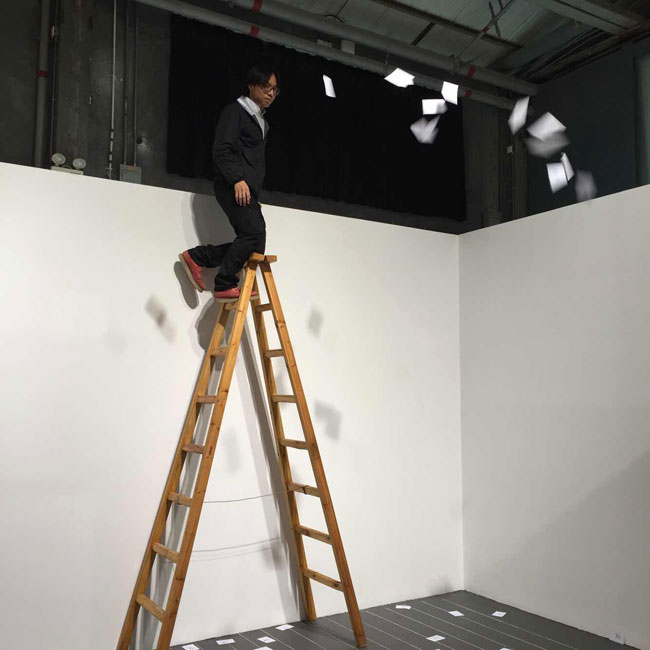
From there, the loosely formed group, with six members at the most, made another series of drawings, each following the same set of rules designating the tools to be used, the forty-five-degree angle at which lines should be drawn, and so forth. They all departed from one black dot and ended up with six sets of drastically different graphics. This process drove them to further reflect on the nature and workings of individual subjectivity. Three of them—Chen, Gu, and Wang—continued to develop together a way of working that would be even more extreme in its attempt to eliminate the presence of the individual hand.
New Measurement was formally founded in the home of Wang Luyan, the more affluent member of the three, who had his own ink painting practice on the side and worked as an art director of the official newspaper of the state railway company. Since then, their works have been far less known than the group photographs of them taken by a New York Times reporter. In these photos, the three appear immersed in their work around a small table piled high with paper and stationery or posed deliberately with grinning faces. Yet one of the strongest messages of these photographs was their desire to present a collective mode of working that stressed the importance of being together. What they actually did over seven years of working and making five books was precisely that: they created a set of rules that became a collection of tools, and a precise working procedure that avoids chance and diversion. One could almost say that their work was the rules they devised, applied to themselves, tested, and constantly revised. They managed to claim that the system of analysis they had invented could be applied to any form or material subject and that, if executed by anyone, would reach the same conclusion. Two decades later, we created a quasi-New Measurement Group to re-execute their rules, and it proved their point. Curiously, two of the three artists only vaguely recalled how their rules worked, and yet one of them could remember most of it.
×


